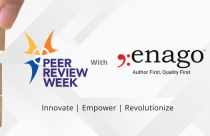To Peer Review or Not to Peer Review: Should We Publish Everything?

As the world of academic publishing has struggled to embrace digital technology and the phenomenal growth of open access journals, the process of peer review has remained intransigent. The ability to share manuscripts by email or Google Docs may have increased the speed with such reviews can be conducted, but beyond that, the decision to publish a research paper still rests with two or three peers who are trusted to be impartial and completely committed to the integrity of the research.
However, the growth of open access journals with an increasing willingness to publish anything for an article processing fee, has raised concerns about the quality of the peer review process. Disconcertingly, fast reviews in the name of making the research available to the public as quickly as possible cast doubt on whether such papers were reviewed at all.
Death by Scandal
Rising numbers of retractions, the birth of peer review rings where researchers collude to review each other’s papers to ensure publication, and cases of completely fabricated reviews from fictitious scientists, have done little to win support for the long-term survival of the peer review process.
The 2009 Climategate scandal in the United Kingdom, where leaked email messages and data files from the Climate Research Unit (CRU) at the University of East Anglia revealed the manipulation of global temperature data by scientists looking to support the Global Warming Theory, generated significant disillusionment in the integrity of academic research in general, and provided valuable ammunition to the anti-global warming campaigns.
The Stain of Disillusionment
The retraction of a single research paper or the exposure of fraudulent behavior at a single journey may be positioned in subsequent PR messages as one-off occurrences that will be addressed immediately by more stringent control protocols, but audiences typically remain unconvinced. Suspicions are cast in a much broader arc. What other mistakes has that research team made in other studies? How many other papers in that journal have been missed? If the journal is part of a larger family of journals under one publishing house, how many of those other journals have missed instances of academic misconduct?
With so many examples of a process that is not working as originally designed, calls for the abolition of the peer review process are gaining traction. If the integrity of impartial peer review can no longer be counted on to deliver a trusted product, why delay the road to publication with a broken mechanism? Why not just publish everything?
“Publish Everything” – An Extreme Solution!
In logistical terms, publishing everything is not a viable solution. Even in the face of a perceived loss of quality, journals would not be willing to publish the hundreds of submissions they receive every month as a proposed panacea. The high volume citations upon which their individual impact factors depend would be lost in a new world of lower volume citations over a deluge of newly-published papers, and that’s assuming researchers would still want to cite papers that haven’t been referred or at least reviewed openly by a respected source.
Some critics argue for the abolition of journals altogether. On the assumption that the quality filter of peer review no longer functions, they propose that all research be posted publicly and ranked by the consumers, in the same way as readers rank Amazon e-books. That may be reassuringly democratic for some, but in reality, unless the identity of the ‘readers’ can be verified, the assessment of the research would remain suspect.










